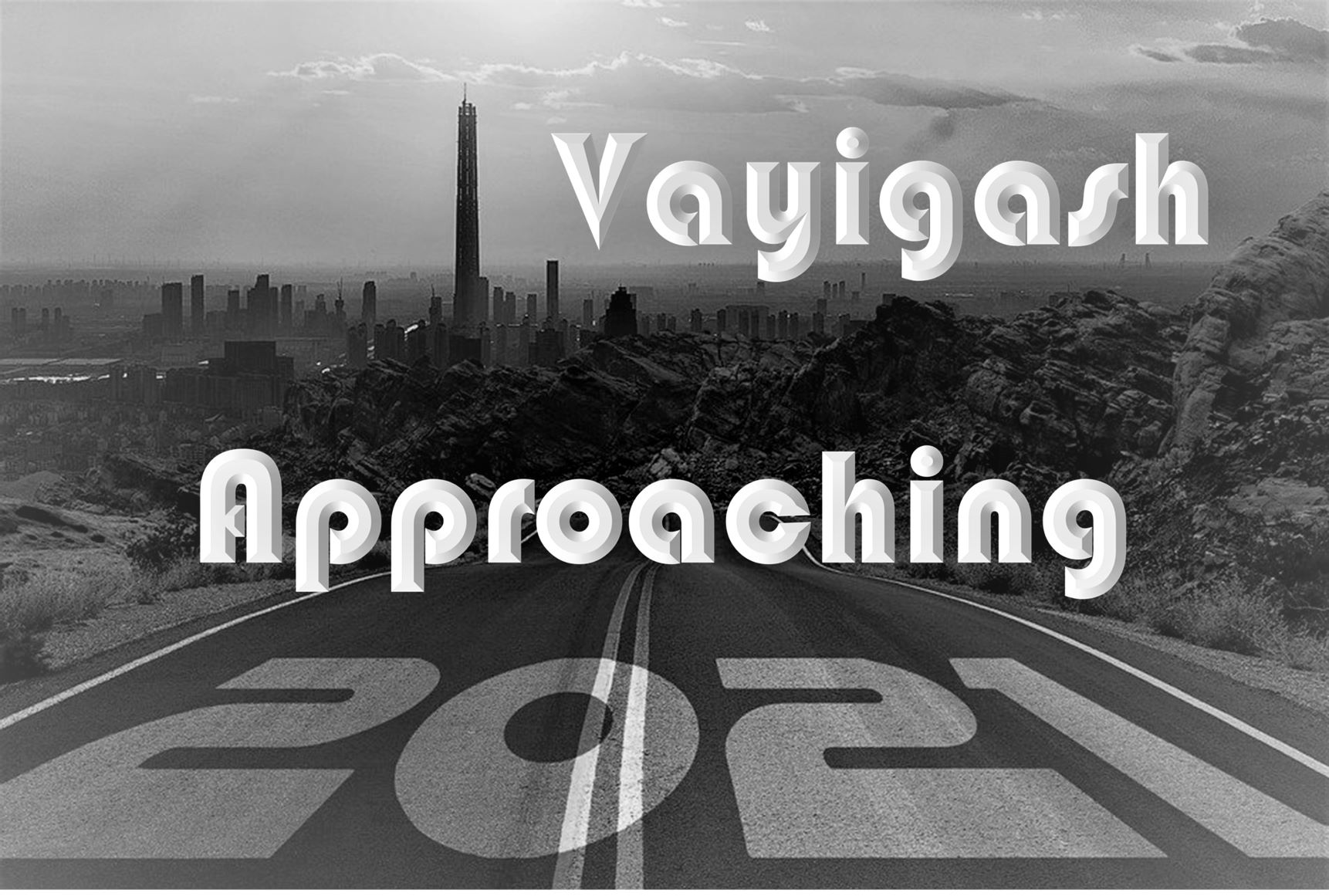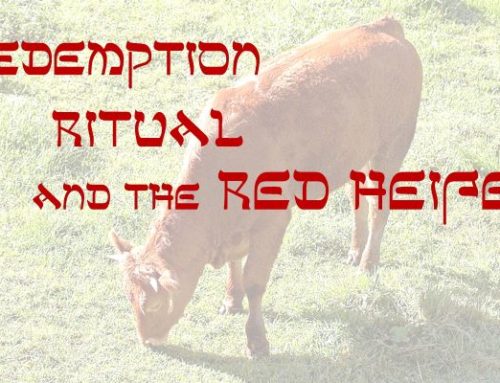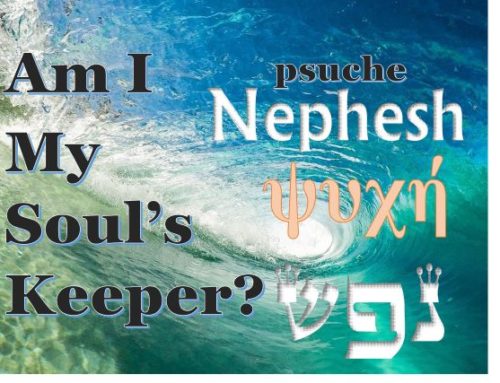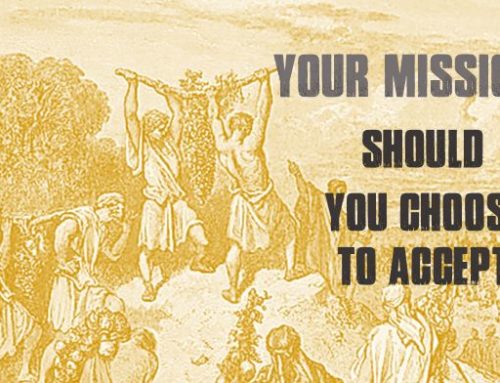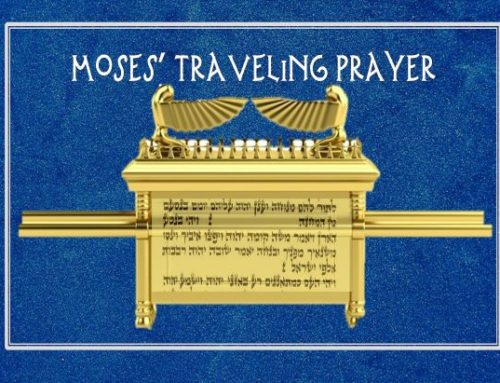Parashat Vayigash (Genesis 44. 18 – 47.26, Ezekiel 37. 15-28)
“Then Judah came near to him and said: “O my lord, please let your servant speak a word in my lord’s hearing, and do not let your anger burn against your servant; for you are even like Pharaoh.” Genesis 44. 18 NKJV
This week’s Torah Portion, Vayigash, meaning, “and he approached”, tells the selfless sacrifice of Judah “approaching” Joseph to intercede for Benjamin, the brothers “approaching” Joseph, and Joseph’s “approaching” them to reveal himself. Similarly, our prophetic portion, haftarah, from Ezekiel portrays the reconciliation of Judah and Joseph in the form of two sticks brought one to another – making them one. Such a miracle, symbolic of the restoration of the tribes of Joseph and Judah, and perhaps Messiah and Israel, will ultimately be accomplished by God. How appropriate, that we should read this message of faith and courage entitled “and he approached” (Vayigash) as we “approach” the year 2021.
I. And He Approached
“For your servant became surety for the lad to my father, saying, ‘If I do not bring him back to you, then I shall bear the blame before my father forever.’ Now therefore, please let your servant remain instead of the lad as a slave to my lord, and let the lad go up with his brothers. For how shall I go up to my father if the lad is not with me, lest perhaps I see the evil that would come upon my father?” Gen. 44. 32-34 NKJV
What does the word approach mean? In Hebrew and English, the word can describe physically coming near, and the manner of coming near. The sages of Israel described vayigash as one approaching for battle, prayer, peace, and intercession.[1] Judah seems to be motivated by all of these. Though he could not explain the stolen cup in Benjamin’s sack, he plead for Benjamin restoration to his father. Judah entered a battle of intercession for Benjamin, the kind he should have waged for Joseph many years earlier. But this meeting had all been orchestrated by Joseph to bring about their reconciliation.
Behold the Man
There is something striking in the picture. Judah, as close as he is, has did not recognize Joseph. He saw the robes and signet ring of Egypt. He saw the challenge before, but he had yet to “behold the man”. Behold the man you sold for silver. Behold the man, whose Jewish robe you stripped away, now clothed in Egyptian garb. Behold the man you declared dead – he lives! Judah came near, but had not truly “approached”.
On so many levels this story speaks to us. Do we “behold the man”, Yeshua, sold for silver, whose robe was stripped away, who was dead yet lives? Are we hindered by His garb within Christianity? How many seminary students lose sight of the savior in their studies? How many followers fail to behold Him, because of the failings of men who speak for Him? Judah’s approaching Joseph is a picture of the restoration of the tribes of Judah and Joseph in the end times, and ultimately the restoration of Israel to Yeshua, Messiah, son of Joseph.
II. The Brothers Approached
“Then Joseph could not restrain himself before all those who stood by him, and he cried out, “Make everyone go out from me!” So no one stood with him while Joseph made himself known to his brothers. And he wept aloud, and the Egyptians and the house of Pharaoh heard it. Then Joseph said to his brothers, “I am Joseph; does my father still live?” But his brothers could not answer him, for they were dismayed in his presence. And Joseph said to his brothers, “Please come near to me.” Gen. 45. 1-4a
Judah’s approach moved Joseph to tears. He ordered all attendants to leave during a moment too sacred to be share with foreigners. “I am Joseph!” He cried. The brothers, unable to answer, were “dismayed in his presence”. “Please come near to me”, he implored. For the second time in our Torah Portion, the verb “approach” occurs.
The contrast of Egyptians driven away, while the brothers are brought forward, is palpable and prophetic. Zechariah paints a similar picture as the one called “pierced”, is beheld by the house of David.
“And I will pour on the house of David and on the inhabitants of Jerusalem the Spirit of grace and supplication; then they will look on Me whom they pierced. Yes, they will mourn for Him as one mourns for his only son, and grieve for Him as one grieves for a firstborn.” Zechariah 12. 10 NKJV
The tears of Joseph and his brothers are answered in the weeping over the “pierced one”. Some Rabbinic commentaries interpret this to be “Messiah son of Joseph” who will be killed and mourned by his own.[2]
- They mourn, for though he was dead, Zechariah reveals He is alive.
- They mourn for their own hands pierced him.
- They will grieve as one grieves for a firstborn.
As Joseph suffered at the hands his brothers, so Messiah “the pierced one” suffered. But the beauty is found in the coming reconciliation, the nations will be asked to leave the stage, as Israel approaches their King. But how will they know him? By the distinguishing marks.
We all played a role in “piercing” the Messiah. He bore our griefs. He carried our sorrow. He was crushed by our iniquity, and by our transgressions, He was pierced.[3] (Isaiah 53. 4-5) This brings us to our third verb to “approach” in Vayigash. As we approach the One whom we pierced, He will approach us with mercy and forgiveness.
III. They Approached (one another)
“So they came near. Then he said: “I am Joseph your brother, whom you sold into Egypt. But now, do not therefore be grieved or angry with yourselves because you sold me here; for God sent me before you to preserve life.” Gen. 45. 4-5 NKJV
The Hebrew says, “they approached”. It is not clear that the “they” refers only to the brothers, or also to Joseph and the brothers – one to another. How would Joseph prove his identity? Tradition says that he made himself known to them in the marks of his circumcision. [4]
How will the “pierced one” of Zechariah, which certain traditions identity with Messiah, be made known to the House of David?
Fanny Crosby, the Christian writer of some 8,000 hymns spent ninety-four years of her life blindness. She wondered how would she recognize loved ones in heaven? Most of all, how would she recognize her Savior? She then penned these words.
When my lifework is ended and I cross the swelling tide,
When the bright and glorious morning I shall see;
I shall know my Redeemer when I reach the other side,
And His smile will be the first to welcome me.
I shall know Him, (I shall know Him,) I shall know Him,
And redeemed by His side I shall stand;
I shall know Him, (I shall know Him,) I shall know Him
By the print of the nails in His hand.
(My Savior First of All – F. Crosby)
Yeshua will be revealed to His brothers in the midst of a seven-year tribulation, much like Joseph was in seven years of famine. In that day all will be asked to leave stage, as Israel approaches their King Messiah. How will they know Him? The same way Thomas knew Him. They will “behold the man” whose marks match those of the covenant (brit) and the cross.
Conclusion
“Say to them, ‘Thus says the Lord God: “Surely I will take the stick of Joseph, which is in the hand of Ephraim, and the tribes of Israel, his companions; and I will join them with it, with the stick of Judah, and make them one stick, and they will be one in My hand.”’ Ezekiel 37. 19 NKJV
The prophecy portion read in the Synagogue for this week of “Vayigash” also powerfully illustrates the restoration of Judah and Joseph with two shepherd staves. Ezekiel is told, “Join them one to another for yourself into one stick, and they will become one in your hand.” Ezek. 37. 17 NKJV But then God says, “I will join them…and make them one stick”.
How will the Messiah be reconciled to His brethren? Through the effort of prophets or supernatural intervention? The answer is both! Like Judah who approached Joseph, Israel must also approach. In fact, the call to all men has gone forth in the world. “Draw near to God and He will draw near to you.” James 4. 8 NKJV
As we draw near, so does He. Even now, those of us who “behold the man”, have begun to weep. Joseph’s words to His brothers are Messiah’s words to us, “Do not therefore be grieved or angry with yourselves because you sold me here; for God sent me before you to preserve life.” Gen. 45. 5 NKJV
As we approach a new civil year, still enduring the pandemic, we anticipate Messiah’s coming on the clouds. In that day, no foreigner will stand with Him as He reveals Himself to His brothers of the circumcision. May He come speedily, in our days. Maran ata. “Come Adon”
Shavuah Tov from Zion
[1] Berasheet, Midrash Rabbah, Vayigash 6.
[2] Jerusalem Talmud, Sukkah, 23b.1
[3] שם משמואל, ויגש ג׳:ו׳ Sefer Shem Mishmuel, Piotrkow, 1927-1934
ולפי”ז יובן מה דהתעורר יהודה לבקש מיוסף שיקבל אותו תמורת בנימן לעבד עולם, כי באשר יהודה הוא מלך א”כ הרי הוא ככל הכלל כולו כמ”ש הרמב”ם שלבו לב העם ולו נאה ולא יאה לסבול העבדות ועוני בשביל כל הכלל, וכמ”ש במשיח…צדקנו והוא מדוכא מעונותינו מחולל מפשעינו ובחבורתו נרפא לנו, ובפסיקתא שאמר משיח להקב”ה ימות הוא ועשרה כיוצא בו ואל יהי’ ניזוק צפורן אחד מישראל, והנה הוא מדת הכנעה וביטול בשביל הכלל, וזה בחי’ לב כנ”ל שזהו
[4] Yalkut Shimoni on Torah 152:1. (n.d.). Retrieved December 27, 2020, from https://www.sefaria.org.il/Yalkut_Shimoni_on_Torah.152.1?vhe=Yalkut_Shimoni_on_Torah
